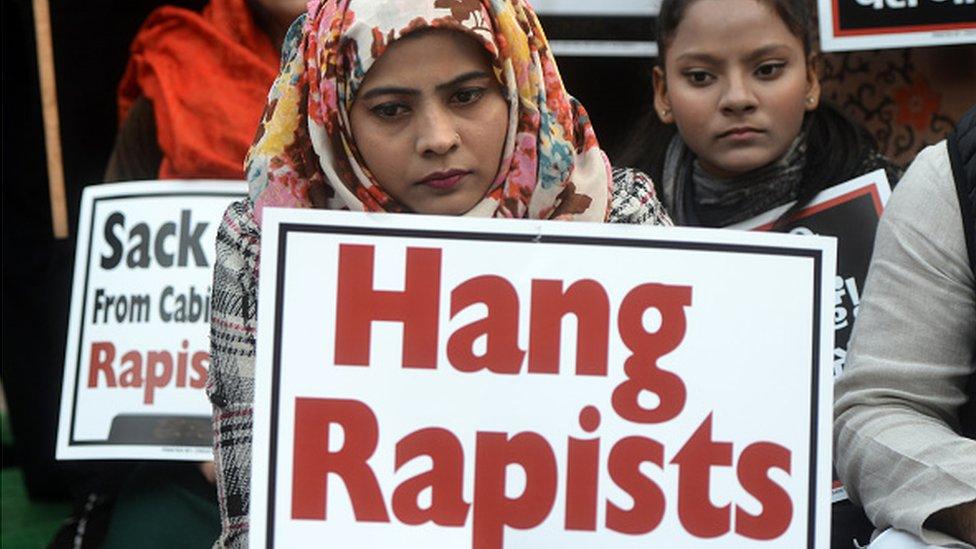'She wanted to live a good life': Parents of Indian doctor raped and murdered on night shift
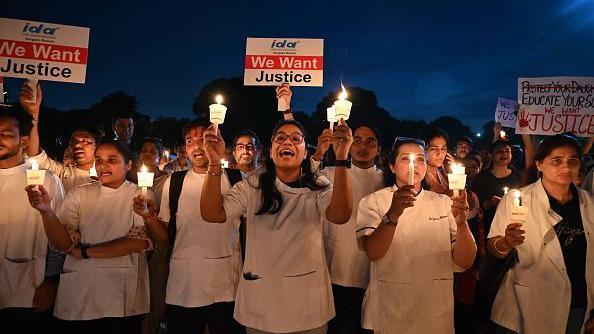
The doctor's death has sparked a nation-wide conversation on violence against women in India
- Published
The rape and murder of a trainee doctor in India’s Kolkata city earlier this month has sparked massive outrage in the country, with tens of thousands of people protesting on the streets, demanding justice. BBC Hindi spoke to the doctor’s parents who remember their daughter as a clever, young woman who wanted to lead a good life and take care of her family.
All names and details of the family have been removed as Indian laws prohibit identifying a rape victim or her family.
"Please make sure dad takes his medicines on time. Don't worry about me."
This was the last thing the 31-year-old doctor said to her mother, hours before she was brutally assaulted in a hospital where she worked.
“The next day, we tried reaching her but the phone kept ringing," the mother told the BBC at their family home in a narrow alley, a few kilometres from Kolkata.
The same morning, the doctor’s partially-clothed body was discovered in the seminar hall, bearing extensive injuries. A hospital volunteer worker has been arrested in connection with the crime.
The incident has sparked massive outrage across the country, with protests in several major cities. At the weekend, doctors across hospitals in India observed a nation-wide strike called by the Indian Medical Association (IMA), with only emergency services available at major hospitals.
The family say they feel hollowed out by their loss.
“At the age of 62, all my dreams have been shattered," her father told the BBC.
Since their daughter's horrific murder, their house, located in a respectable neighbourhood, has become the focus of intense media scrutiny.
Behind a police barricade stand dozens of journalists and camera crew, hoping to capture the parents in case they step out.
A group of 10 to 15 police officers perpetually stand guard to ensure the cameras do not take photos of the victim's house.
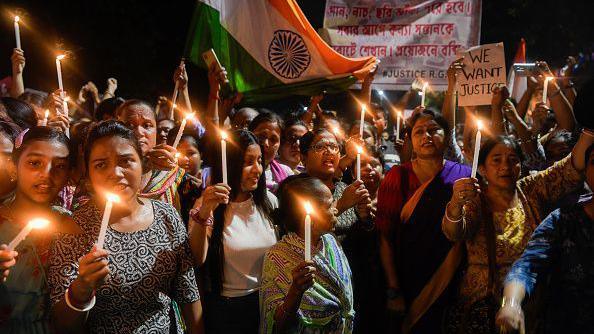
Violence against women remains a major issue - according to government data, an average of 90 rapes a day were reported in 2022
The crime took place on the night of 9 August, when the woman, who was a junior doctor at the city's RG Kar Medical College, had gone to a seminar room to rest after a gruelling 36-hour shift.
Her parents remembered how the young doctor, their only child, was a passionate student who worked extremely hard to become a doctor.
“We come from a lower middle-class background and built everything on our own. When she was little, we struggled financially," said the father, who is a tailor.
The living room where he sat was cluttered with tools from his profession - a sewing machine, spools of thread and a heavy iron. There were scraps of fabrics scattered on the floor.
There were times when the family did not have money to even buy pomegranates, their daughter's favourite fruit, he continued.
"But she could never bring herself to ask for anything for herself."
“People would say, ‘You can’t make your daughter a doctor'. But my daughter proved everyone wrong and got admission in a government-run medical college," he added, breaking down. A relative tried to console him.
The mother recalled how her daughter would write in her diary every night before going to bed.
“She wrote that she wanted to win a gold medal for her medical degree. She wanted to lead a good life and take care of us too,” she said softly.
And she did.
The father, who is a high blood-pressure patient, said their daughter always made sure he took his medicines on time.
“Once I ran out of medicine and thought I’d just buy it the next day. But she found out, and even though it was around 10 or 11pm at night, she said no-one will eat until the medicine is here,” he said.
“That’s how she was - she never let me worry about anything."
Her mother listened intently, her hands repeatedly touching a gold bangle on her wrist - a bangle she had bought with her daughter.
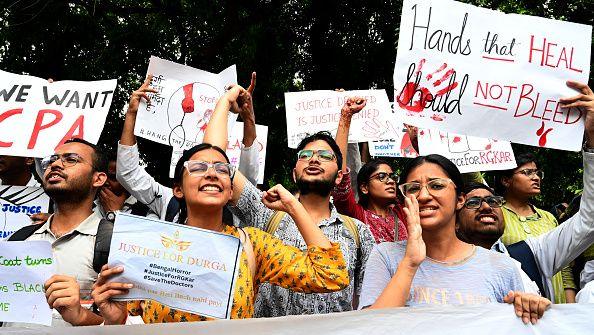
The Kolkata case has put a spotlight on the challenges faced by healthcare workers, especially women
The parents said their daughter’s marriage had almost been finalised. "But she would tell us not to worry and say she would continue to take care of all our expenses even after marriage," the father said.
As he spoke those words, the mother began to weep, her soft sobs echoing in the background.
Occasionally, her eyes would wander to the staircase, leading up to their daughter's room.
The door has remained shut since 10 August and the parents have not set foot there since the news of her death.
They say they still can't believe that something "so barbaric" could happen to their daughter at her workplace.
"The hospital should be a safe place," the father said.
Violence against women is a major issue in India - an average of 90 rapes a day were reported in 2022, according to government data.
The parents said their daughter’s death had brought back memories of a 2012 case when a 22-year-old physiotherapy intern was gang-raped on a moving bus in capital Delhi. Her injuries were fatal.
Following the assault - which made global headlines and led to weeks of protests - India tightened laws against sexual violence.
But reported cases of sexual assault have gone up and access to justice still remains a challenge for women.
Last week, thousands participated in a Reclaim the Night march held in Kolkata to demand safety for women across the country.
The doctor’s case has also put a spotlight on challenges faced by healthcare workers, who have demanded a thorough and impartial investigation into the murder and a federal law to protect them - especially women - at work.
Federal Health Minister JP Nadda has assured doctors that he will bring in strict measures to ensure better safety in their professional environments.
But for the parents of the doctor, it's too little too late.
“We want the harshest punishment for the culprit," the father said.
“Our state, our country and the whole world is asking for justice for our daughter."
Related topics
Read more on this story
- Published15 August 2024
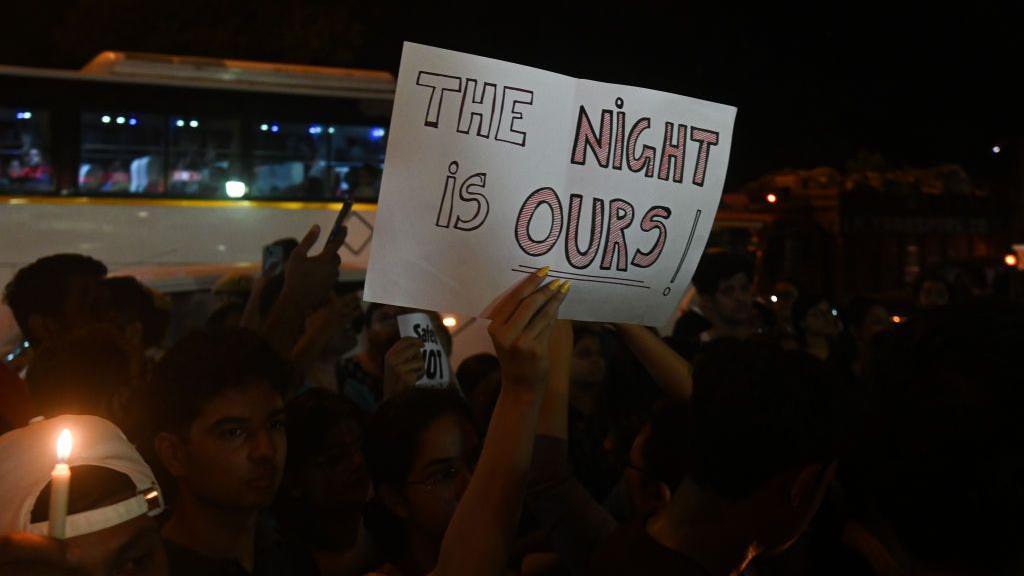
- Published20 August 2024
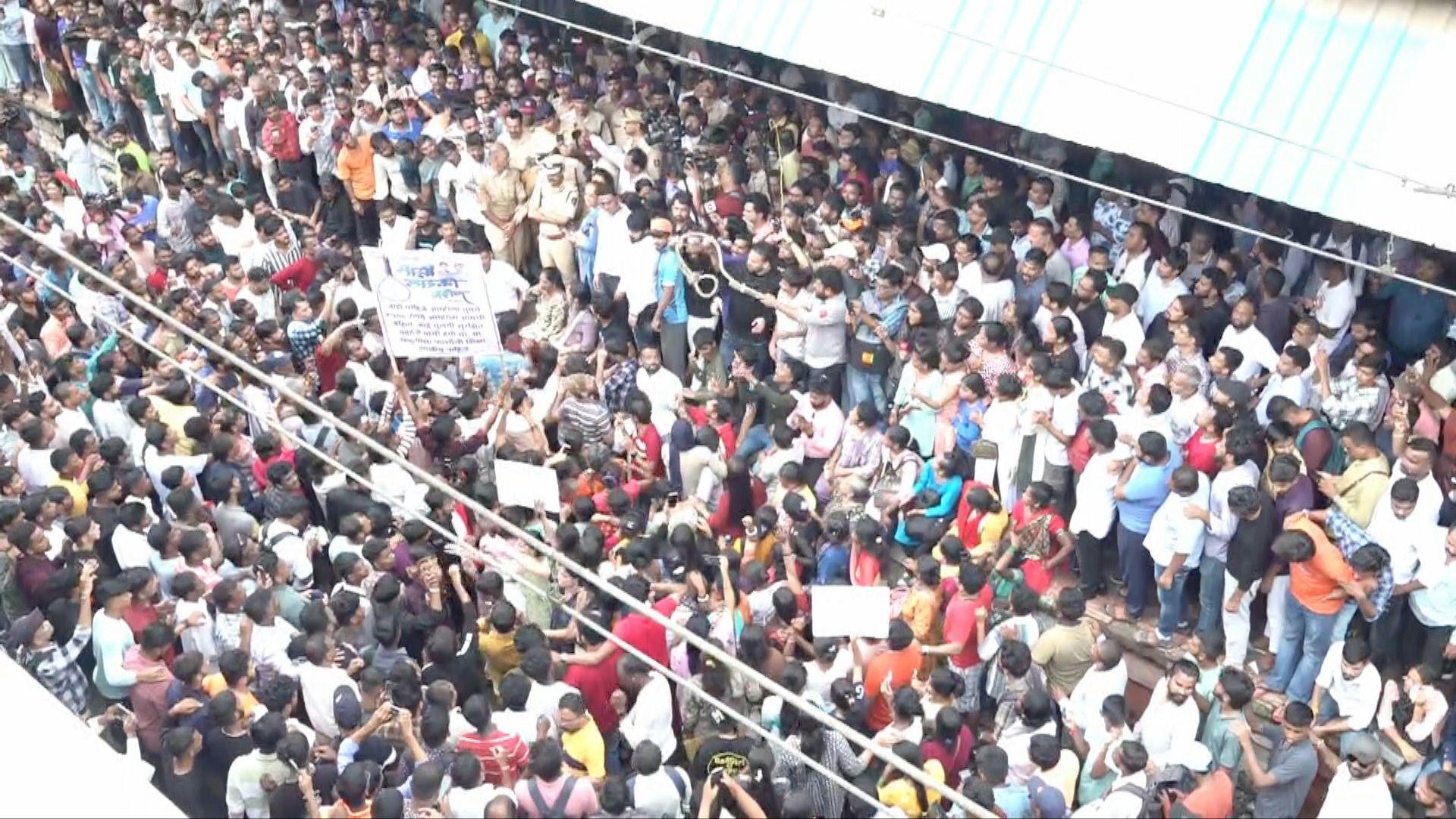
- Published29 September 2020
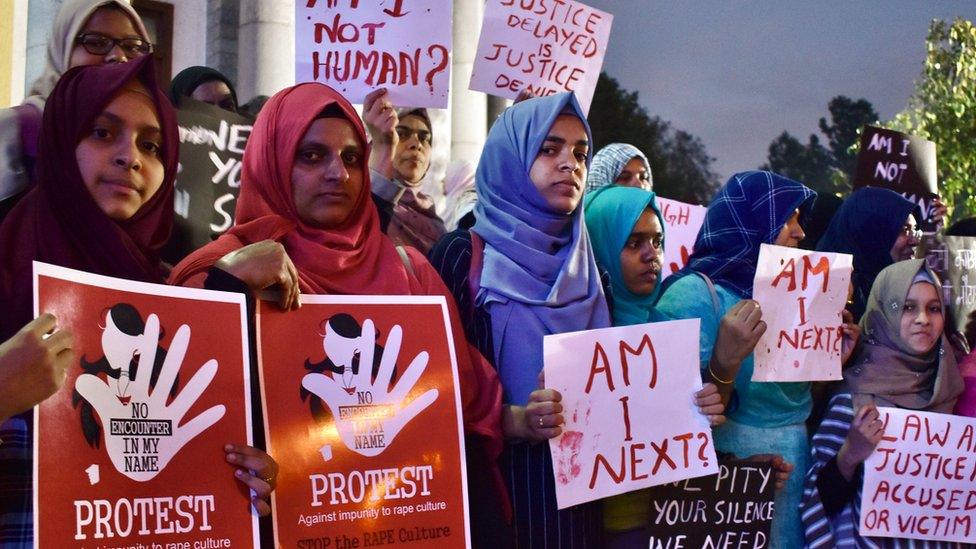
- Published15 December 2022
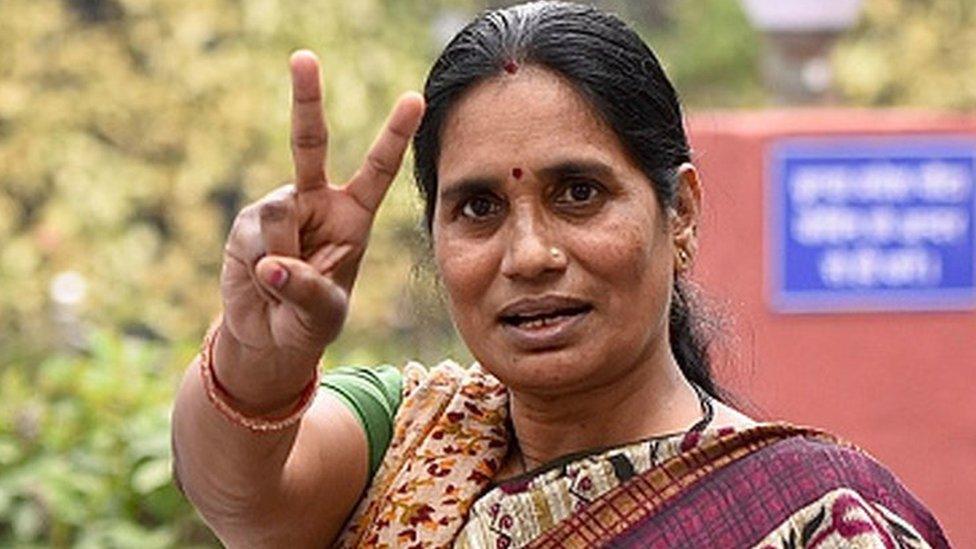
- Published20 March 2020
